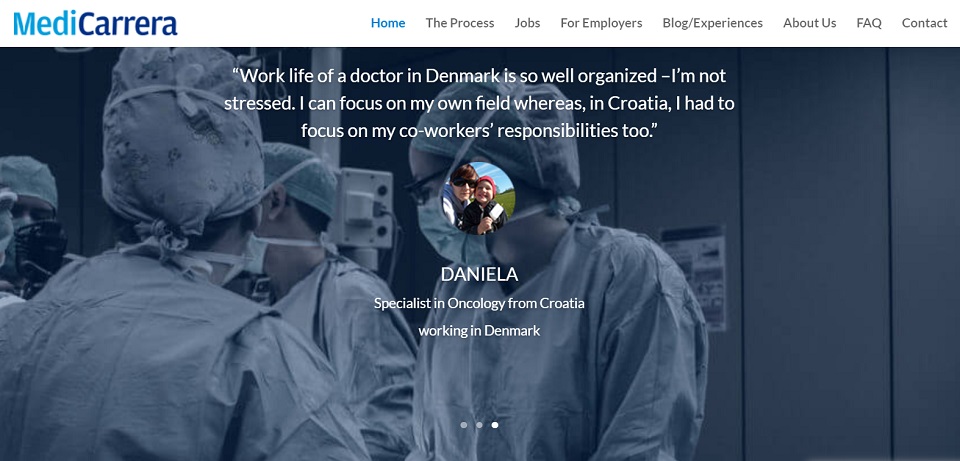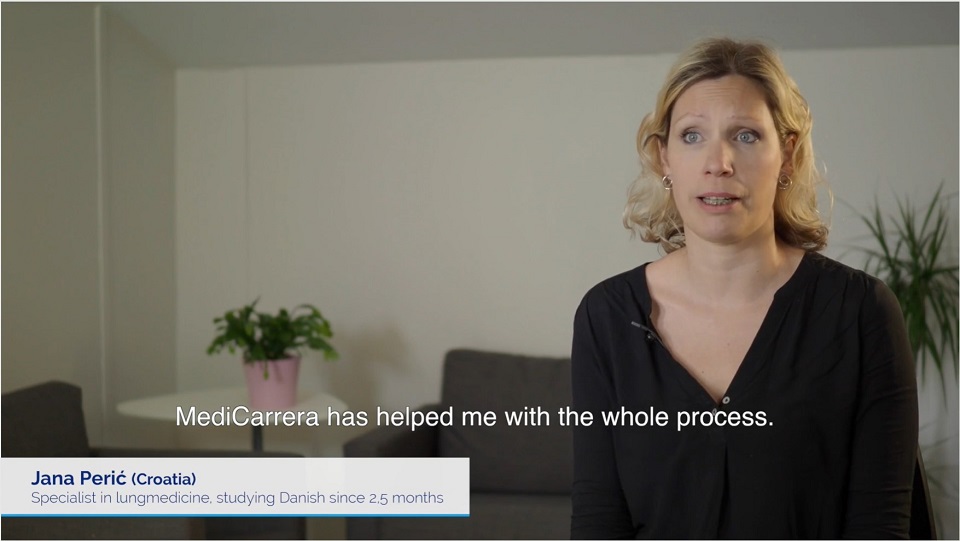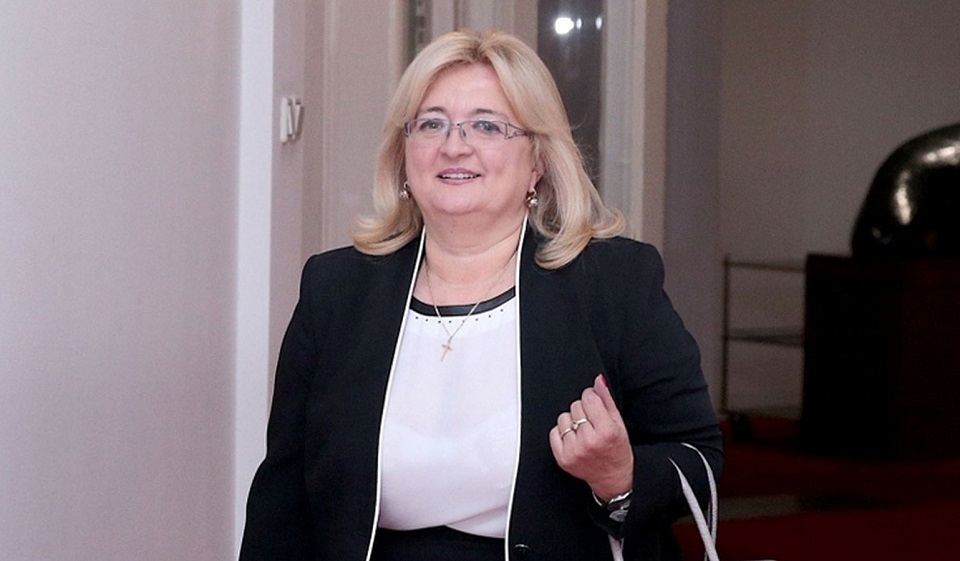Croatians Twice as Likely to Die From Treatable Diseases Compared to EU
Croatian Parliament MPs Božo Petrov and Ines Strenja emphasized that, despite the dismissal of Health Minister Milan Kujundžic, problems with Croatian health system have not gone away. They also pointed out that Croatians are twice as likely to die of treatable diseases as citizens in more developed European countries.

MediCarrera | Screenshot
Medical Staff Leaving Croatia: Remainers Working Unpaid Overtime
"After three and a half years of inaction, it is time to start treating chronic illnesses in the Croatian healthcare system. The system is in debt, irrationally organized, filled with red tape and waiting lists while doctors and other medical staff are leaving Croatia (for opportunities abroad). Those who remain, like nurses, are at a disadvantage and are being forced to work unpaid overtime hours,” Petrov pointed out.
Scandinavia Offers Croatians Free Relocation, Language Training, Child Care
Indeed, more financially prosperous EU countries have set up one-stop recruiting sites to lure medical professionals to their countries to the further detriment of Croatian citizens and residents. MediCarrera, a website serving the medical career recruitment needs of Denmark, Sweden and Norway; offers job placement, language training for hires and their families, accommodations and relocation costs; all of which are financed by employers in their respective countries.

MediCarrera | Screenshot
Several Swedish media outlets have recently criticized Croatia for its demographic losses and emigration.
Despite these external and internal challenges, Petrov insisted to members of the Croatian government that Most would not let them continue policies of inaction which had defined the former health minister's term according to Index on February 14, 2020.
Croatians Have Highest Mortality Rate for Treatable Diseases
Strenja pointed out that Croatian citizens continue to occupy high, and sometimes the highest, mortality rates among all EU citizens for avoidable and treatable diseases.
The reason, she said, lies in the lack of effective preventive medicine, timely diagnosis and the timely beginning of treatment.

Ines Strenja | Most
Strenja: Investing in Preventative Medicine Yields Fourfold Savings
"Again, unrefined protocol, procedures, measures and responsibilities will continue to miss desired expectations, which is ultimately evident in the overall health data. We emphasize that the investment in preventive medicine is the best bet and yields fourfold savings in treatment," Strenje explained.
She added that ex-Minister Kujundžic's files contain proposals for national strategies that would lower the death rate in Croatia from preventable diseases which is currently 293 per 100 thousand inhabitants compared to 140 per 100 thousand in the EU. The mortality from treatable diseases in our country is 140 per 100 thousand compared to only 90 out of 100 thousand in the EU.
“Therefore, I am calling on the new Health Minister, Vili Beroš, to discharge them and move on to combat chronic non-communicable diseases and conditions in Croatia,” Strenja urged.

Ivan Bekavac | N1
Bekavac: Action Plan Another 'Wish List'
Ivan Bekavac, Advisor for Most’s Health Council, pointed out that two key documents should guide the future of Croatians: The Draft Proposal for the Prevention and Control of Chronic Non-Communicable Diseases 2020-2026 and the Draft National Cancer Plan 2020-2030.
"The Action Plan for the Prevention and Control off Chronic Noncommunicable Diseases 2020-2026 does not sufficiently emphasize the responsibility of the Croatian government for the health of the population, because it must place much greater emphasis on the coordination of all departments in promoting and preserving health. It is just a wish list of suggestions, and is almost identical to the previous action plan, and again lacks elements of supervision, monitoring, performance evaluation and research," he explained.
He also considers it a disadvantage that the Draft National Cancer Plan 2020-2030 omitted family medicine doctors who are most familiar with their patients, their habits and family heritage, and emphasized that they should be key stakeholders in encouraging and mobilizing patients for preventive examinations.
Follow our Politics page to keep updated on the health care crisis in Croatia.
Croatian Health Insurance Fund Unveils Method to Shorten Waiting Lists
As Poslovni Dnevnik/Marija Crnjak writes on the 22nd of December, 2019, according to the Croatian Health Insurance Fund (HZZO), patients will have what they needed ordered by their family doctors, while procedures such as MR and CT scans, as well as cataract examinations and gastroscopies will be booked by specialists or hospital administrators.
This manner of doing things will reduce waiting lists, help to prevent confusion and aid both patients and the hospitals conducting the procedures themselves, ensuring a better delivery of service and more satisfaction on both ends.
The brand new, unique calendar for ''ordering'' diagnostic procedures for patients in hospitals was launched this week, which should introduce more order in queues and reduce waiting lists for nine medical procedures, and so far, 42 of 64 Croatian hospitals have been included in the calendar, the Croatian Health Insurance Fund (HZZO) stated on Thursday.
The Croatian hospitals included are those that have a compatible IT system, while other hospitals will be networked in properly by May next year. The new ordering method currently covers nine long-awaited procedures, MR and CT scans, Holter ECG, heart ultrasounds, ergometry, cataract surgery, breast ultrasounds, thyroid gland ultrasounds and gastroscopies, and the Croatian Health Insurance Fund's plans are to continue to expand this list.
As mentioned, according to HZZO's new method, patients will have what they needed ordered by their family doctors, while procedures such as those listed above will be arranged by specialists or by hospital administrators. Patients will also be able to cancel their appointments through the eGrađanin (eCitizen) health portal, as well as arrange for the changing of the dates and medical institution for certain procedures.
"A single ordering calendar will prevent multiple patient orders from hospitals, which currently unrealistically increases waiting lists, and ordering by OIB automatically prevents the same person from ordering at another institution," HZZO Director Lucijan Vukelić said during a recent press conference.
Since the establishment of the system on December the 15th, 2019, as many as 1088 multiple orders have been detected in just three days, meaning that the Croatian Health Insurance Fund's new system works.
Make sure to follow our dedicated lifestyle page for much more.
Croatia to Limit Abuse of HZZO Healthcare for Croats Living Abroad
Since health insurance in several other EU countries is considerably more expensive than it is here in Croatia, many Croats who are actively living and working abroad keep returning to Croatia to have check ups during pregnancy, get dental treatment, obtain certain prescription medication and undergo various forms of physical therapy. The Croatian Government is seeking to limit what some deem to be an abuse of HZZO's system.
As Poslovni Dnevnik writes on the 18th of June, 2019, Estonia and Finland are the first countries with which the Republic of Croatia will exchange electronic healthcare data electronically, from e-prescriptions onwards. In addition to assisting in providing healthcare services, this advanced way of doing things should also encourage and more easily enable the discovery of Croatian citizens who have left the country over the past few years in search of work abroad, and who are still insured through HZZO (Croatian Health Insurance Fund), Novi list writes.
According to recent estimates by the competent body, 330,000 persons who have left Croatia have retained their health insurance they are entitled to through HZZO and use it personally or through relatives and acquaintances. According to statements made by doctors who have been seen by such patients, two thirds of Croatian citizens who went abroad work are still actively using Croatian health insurance, with friends and relatives reporting their presence every month at the Croatian employment office and getting them medicines which they then send to them in their new countries by bus to Austria, Germany, Ireland, or wherever else.
Since health insurance in these countries is considerably more expensive than it is through HZZO in Croatia, Croatian immigrants are often returning to Croatia for pregnancy check ups, dental treatment, to obtain various forms of prescription medication or to undertake different types of physical therapy.
The number of HZZO insured persons stood at 4,149,419 at the beginning of May this year, while the State Bureau of Statistics estimates that as of 31.12.2017, the statistic speaks of about 4,105,493 inhabitants in Croatia. Therefore, even without the grey zone of those who didn't de-register themselves with HZZO before leaving the country permanently, the official institutions record a surplus of 44,000 such insured persons.
"After long negotiations, we've signed an agreement with the Croatian Ministry of the Interior and now we need to sort out the IT side of everything get things in motion. Next come negotiations with the Tax Administration, to see where an individual is paying their taxes and to gain an insight into his place of residence,'' explained the director of HZZO, Lucijan Vukelić, in conversation with Novi list.
While one EU country, such as the United Kingdom, has free healthcare (taxpayer funded) for all lawful residents, according to HZZO's findings, in countries such as Germany and Italy, Croatian immigrants must have health insurance, but this doesn't mean that they actually go to the doctor there, because the participation in health care services is far greater in such countries than it is at home. It's cheaper for them to come and get what they need when they come to Croatia. Much like the United Kingdom, the Republic of Ireland also has no health insurance obligation, but anyone who goes there to work must register their residence with the Irish authorities.
How will everything in that enormous grey area work soon? Before a pharmacist in another country issues some medication via an e-prescription, he will ask for the patient's permission to receive his prescriptions, and when the patient receives his or her prescription medication, he or she will have to pay the full cost of the prescription and ask for a refund from his insurer in the country where the prescription was issued.
Make sure to follow our dedicated lifestyle page for much more.
High Number of HZZO Insured People Not Living in Croatia
Since as far back as 1998, when a person is left without work, their health insurance and the right to receive health care has been made possible by going and registering with the Croatian Health Insurance Fund (HZZO).
As Poslovni Dnevnik writes on the 19th of March, 2019, although thousands upon thousands of people have left Croatia in recent years, many of them are still being treated medically in their homeland, primarily because it pays off more than doing so elsewhere. This trend was warned about by the Croatian Association of Contracting Ordinations. They estimate that as many as 330,000 people who don't actually live in Croatia are still exercising the right to the country's health insurance benefits through HZZO.
As mentioned, since back in 1998, when a person becomes left without work, their right to health insurance is realised rather simply via registration with HZZO. At the same time, this person does not actually have to be regisered as unemployed officially, as was explained by HZZ. This leads to a large number of people working and paying their taxes over in Germany, and coming and getting their teeth fixed while on holiday in summer in Croatia.
This is apparently also an issue in the mind of the Croatian health minister, both financially and morally. "It's not fair to those who live here and who pay for health insurance, therefore HZZO will undertake and is already taking out certain measures [to attempt to deal with this issue]," said Minister Milan Kujundzic. Such measures will also soon be taken up by the European Union itself. Electronic data exchanges between member states is being introduced, which will help control those who are HZZO insured.
''According to the data we have, as of the 31st of December 2018, compared to 2017, we've got 40,850 less insured persons - that's about 0,96 percent. Our records include some 60,000 workers who work for our _Crpatian+ companies in the EU,'' said the HZZO's director, Lucijan Vukelić. He emphasised the fact that HZZO has been caught up with the various problems of expatriates from Croatia who pay their taxes abroad and are still in HZZO's register, and are therefore treated for whatever ailments may bother them here in Croatia.
Vukelić also noted that HZZO should enter into a joint data exchange with the EU on the 1st of July this year. This data also includes non-EU countries, but involves them as they are economically linked to the EU. It is a bi task and a fairly painstaking process because there are many countries involved, both EU and non EU across the European continent.
There are numerous confusing laws that many misinterpret when it comes to health insurance in Croatia which came into force when Croatia joined the EU back in 2013.
EU countries with a public health system such as Poland and the UK made it so that, for example, British nationals who are resident in Croatia could use their EU health card to access healthcare in Croatia, effectively trading one public insurance policy for another. Such laws appear to have created more confusion than sense, and whether or not HZZO will manage to get to the bottom of the situation with its own nationals with MUP's help is yet to be seen.
Make sure to follow our dedicated lifestyle page for more.
More People Use Croatian Health System Than Actually Live in Croatia?
As Croatia's increasingly alarming negative demographic trend tightens its grip over the country and its economy, there seems to be more people insured by the Croatian health system (HZZO) than actually live and work here...
As Index/Marko Repecki writes on the 26th of February, 2019, due to the negative demographic trends and a fairly low birth rate, Croatia has now worryingly fallen below four million residents, according to the estimates of demographers, but at the same time, there are miraculously 4,145,169 persons who have Croatian Health Insurance from HZZO.
This means that more people are apparently entitled to Croatian health insurance than are actually really living in Croatia. This phenomenon is not entirely new, because when we look at some of the data for the previous years, it can be seen that there are approximately between 90 and 120 thousand people who seem to be insured with HZZO, therefore using the services of the Croatian health system, than actually live here.
Who exactly are these people who have HZZO health insurance and don't live in Croatia?
Index readily asked HZZO to explain just how this difference of Croatian health system users came about, and they answered that there are persons who are still considered as insured persons in Croatia, although they don't actually live here.
"On the 31st of January, 2019. 4,145,169 insured persons were registered in the Croatian Health Insurance Institute (HZZO). Please note that in some cases the person is still considered to be an insured person, even though they don't live Croatia. As an example, we include: active Croatian insured persons with residence in another EU member state (such as an actively insured Croat who lives in Slovenia), beneficiaries of Croatian pensions who have moved to the territory of another [EU] member state, and our delegates doing temporary work in another member state (a worker whom a Croatian employer sent for temporary employment in, for example, Germany). In all these cases, it regards persons who remain insured persons of HZZO, but they also enjoy the right to health care in the territory of other member states, in accordance with EU regulations on the coordination of the social security system,'' HZZO's statement said.
Index also sought further clarification on who is actually considered an actively insured person, and they got the following answer:
"An active insured is a person who is employed and pays contributions for compulsory health insurance, which are paid by their employer. Such insured persons do not pay health insurance contributions in the country where they live, but their contributions are paid in the country where they work. A person can't be insured in two EU member states, but is insured in the country in which they work, and in the territory of the other [member] state in which they're living, they have the right to full healthcare, just like all of the other persons with health insurance in that [member] state, on the basis of having health insurance in their country of work. For example, an actively insured person works in Croatia and lives in Slovenia, he is then entitled to full health care on the territory of Slovenia, at the expense of the Croatian Health Insurance Institute,'' HZZO replied.
The head of the Lipa Association (Udruga Lipa): "We pay 23 billion kuna every year for healthcare, and the system is breaking down"
145,000 people seems a huge number if we're talking about people who live abroad, yet work in Croatia, or are retirees with a Croatian pension yet live in another EU member state. Index asked the Lipa Association for a comment:
''We at the Lipa Association don't know why HZZO has a higher number of insured persons than the population of Croatia according to DZS and to demographers,'' said Lipa's Zoran Löw, but he referred generally to the catastrophic state of healthcare. Although Croatian workers to pay out a sum of money for access to state healthcare, the Croatian Health Insurance Institute, Croatia's chief health system funder, spends around 23 billion kuna annually, in five years, that comes to a huge amount of 115 billion kuna. We're witnessing the complete disintegration of the system where people literally die on roads, and examinations are being waited for for months, and in some cases, for years.
Löw added that they forwarded an open letter to Milan Kujundžić, the Croatian Health Minister back in 2017, warning of the need to include private institutions in the state's health system.
"In many EU countries, private institutions providing health services are integrated into the system so that they compete equally for jobs funded from the public system. Let's just list some: the Netherlands, Sweden, Portugal, Germany... And this is not just about simpler institutions such as labs or family medicine, the're also serious clinics. In this way, it introduces some healthy market competition and the whole system becomes more agile and financially viable. Unfortunately, in Croatia, this approach is viewed as the privatisation of the healthcare system. This government and its health minister obviously don't have the courage to come out with such an initiative and stand behind it,'' they stated from Lipa.
Make sure to stay up to date with news on the Croatian health system and much, much more by following our dedicated lifestyle page.
Click here for the original article by Marko Repecki on Index.hr
Confidential Patient Correspondence Given to Kindergarten Kids in Zagreb... as Drawing Paper
A confidential memo from the Croatian Health Insurance Fund regarding gender reassignment ended up in a kindergarten in Zagreb, along with the patient's name and address
Split Gynaecologist To Close Practice Due to Debt, 7000 Women Left Without Health Care?
Patients to Communicate with Physicians through Mobile App
Croatian Institute for Health Insurance will make life easier for patients and physicians.

